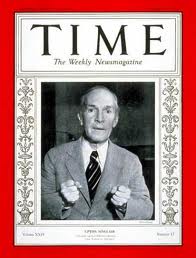By Christopher B. Daly
Let’s stipulate that killing large animals is probably difficult and bloody.
Let’s stipulate that most of us are not exactly volunteering to slaughter the animals we eat.
Let’s also stipulate that there are probably no trade secrets in any U.S. slaughterhouse that require secrecy.
So, the only reasons for secrecy are to protect consumers from the truth about meat, or to protect shameful practices from public exposure. Either way, there is a case to be made for ending the secrecy that shrouds the practices of agribusiness and large-scale meat production.
That’s what law professor Jedediah Purdy tries to do in an op-ed in today’s Times.
I don’t know if his piece will make any difference, but it’s a welcome pushback to the movement in many states to shield meat processors from the prying cameras of animal-rights activists and journalists. The campaign to pass so-called “ag-gag” laws is a direct assault on the protections granted to news-gathering activities under the First Amendment. Such unconstitutional laws, outlined in the Times three days ago, are exactly the kind of thing that would have prevented one of the classics of the muck-raking movement, Upton Sinclair’s expose of the meat-packing industry in turn-of-the-century Chicago — published as a thinly fictionalized novel, The Jungle.
Which raises a question: would we be better off as a society if meat-packers had been able to shield their practices of a century ago and persist in disgusting, inhumane, and literally sickening methods of  preparing our food?
preparing our food?
I say, let the sun shine in. We all should take a look.



I agree with you on this; a bit of light never hurt anyone :). As an aside, i can recall reading Upton Sinclair’s book some 35 years ago, and I have never forgotten it…definitely on a par with Steinbeck’s work, and in some ways more impacting…thanks for bringing it, and this issue, to our attention!
LikeLike
I agree, Mary…and with your comment Christopher, about ‘letting the sun shine in’. If the ag industry is pushing for privacy laws, they are already admitting that some of their practices are suspect.
LikeLike